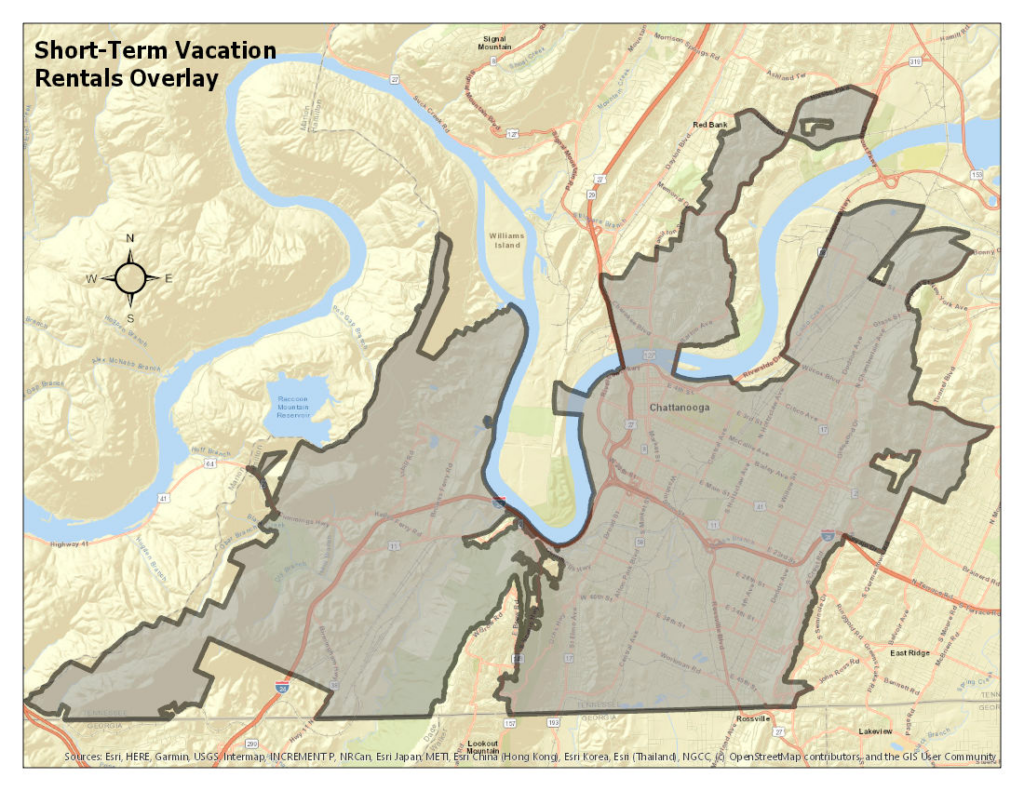Reform legislation simplifies compliance, increases fines for violations, and protects Chattanooga’s residential zones from overtly commercial activity
Chattanooga City Council today approved administration-sponsored legislation that will reform and streamline short-term vacation rental rules, simplifying compliance while toughening enforcement.
The new law will protect private property rights and safeguard the integrity of Chattanooga’s neighborhoods by limiting new short term vacation rentals (STVR) in residential areas, while allowing them in any commercial district where it is already legal to build a hotel.
The new rules also recognize the difference between absentee landlords and landlords who reside in the dwelling, and the city adopted different approaches for each, given the commercial nature of renting out an entire home as a business, versus renting out a bedroom or basement to help make ends meet.
“Chattanooga is truly an amazing place to visit, and we welcome guests from near and far to come see why we call it the Scenic City, but we must also work to crack down on illegal short term vacation rentals that disrupt the character of our neighborhoods and harm our own residents’ quality of life by inflating housing prices,” said Chattanooga Mayor Tim Kelly. “We’ve heard for years that the existing system didn’t work for business owners or for our neighborhoods, and I’m grateful to the City Council for the long hours they’ve put into enacting these common-sense ground rules that promote both healthy neighborhoods and the wise use of our commercial corridors.”

Operators of homestays, or short-term vacation rentals in which the homeowner lives full-time in the dwelling, will be allowed in every commercial zone that allows hotels, as well as any residential zone in the existing short-term vacation rental overlay, which encompasses much of the downtown footprint. All currently permitted STVRs will be grandfathered in and those permits may be renewed annually and property permits may be transferred between owners.
While absentee STVRs will also be allowed in any commercial district that allows a hotel, they will not be permitted in a residential zone.
Saturation within multi-family residential buildings will be limited at 25% of total dwellings.
The rules also require that a local contact be available 24 hours per day by phone, and they must be able to arrive in person within two hours in case of a safety issue or noise complaint.
Lastly, the new rules provide that any property rezoned from residential to commercial will be subject to an 18-month cooling-off period before an applicant may apply for a STVR permit, which is designed to disincentivize property owners from circumventing the new law.
All alleged violations of any STVR rules will go before an administrative hearing officer, who will be empowered to charge up to $500 per day for violations of the new ordinance.
The rules were developed during dozens of meetings held with business owners and neighborhood groups that took place over nearly a year, and incorporate hundreds of hours of feedback from stakeholders that was collected, analyzed and turned into legislation by Chris Anderson, the mayor’s senior advisor for legislative affairs.
“I’d like to especially thank Chip Henderson, who chaired the ad-hoc committee on short term vacation rentals, as well as City Council Chair Raquetta Dotley, Vice-Chair Jenny Hill, and Chris Anderson for their efforts in getting us to a place where we feel comfortable moving forward,” Kelly said. “This type of work isn’t always easy or glamorous, but it’s what our residents expect, and I think it’s something we can all be proud of.”
| Zones that allow absentee STVR permits: | C-2 C-3 C-4 C-5 UGC CC |
IX RF RV CX SH |
| Zones that allow homestays: | All of the above, plus any residence within the STVR overlay (pictured, above) | |

